Plant poachers, including fugitives, repeat offenders and crooks who operate internationally, are damaging critical ecosystems in South Africa and are probably behind the near extinction of some rare succulent species as they continue stealing hundreds of thousands of them.
To try to get a grip on the problem, police say they are trying to take down syndicates on many fronts, including from within. In the Western Cape they are recruiting and training more informers.
Farmers are also being told about what to look out for, to try to stop poaching.
Although plant theft is nothing new, several arrests of suspected succulent smugglers were made recently in the Western Cape, with thousands of plants, some about 100 years old, confiscated. It is believed, however, that this is a fraction of what is being ripped out of the ground.
South African National Biodiversity Institute (Sanbi) spokesperson Nontsikelelo Mpulo told DM168 that, over the past three years, the amount of material confiscated in such crimes had increased by more than 250%.
“By November 2021, there were [more than] 415,000 succulent plants confiscated,” she said. “While law enforcement and reporting of the poaching is proving valuable, we still suspect that less than 25% of the trade is intercepted by law enforcers. This means [it] is likely that over 1.5 million plants have been removed from the wild in the past three years…
 In November 2020, police discovered 2,262 succulents during an undercover operation in Vanrhynsdorp in the Western Cape. Four suspects were arrested for dealing in protected succulents without a permit. (Photo: SAPS)
In November 2020, police discovered 2,262 succulents during an undercover operation in Vanrhynsdorp in the Western Cape. Four suspects were arrested for dealing in protected succulents without a permit. (Photo: SAPS)
“It is very likely that some species have already been poached to extinction in the wild because the number of confiscated poached plants being housed at secure locations for court cases often exceed[s] the previously estimated total wild population size.”
Plants can be classified as rare, protected and indigenous. Different types of permits for activities relating to these are needed, without which it is illegal to remove the plants from the wild.
Succulents and some bulb species (known as geophytes) are being targeted to supply demand within special horticultural markets.
Mpulo said the succulent Karoo biome, which stretches from Lüderitz in Namibia, across South Africa’s West Coast and into the Western Cape’s Little Karoo, was “one out of just two arid hotspots in the world with many of the species found nowhere else on Earth”.
Collectibles
GroundUp reported this month that unemployment was driving poaching, with a poacher able to sell a plant to middlemen and buyers for about R30 to R100. It was not clear how much plants were then sold for, higher up the black-market chain, but a South African police officer was quoted in National Geographic in March as saying a single plant could fetch “a few hundred to thousands of dollars”.
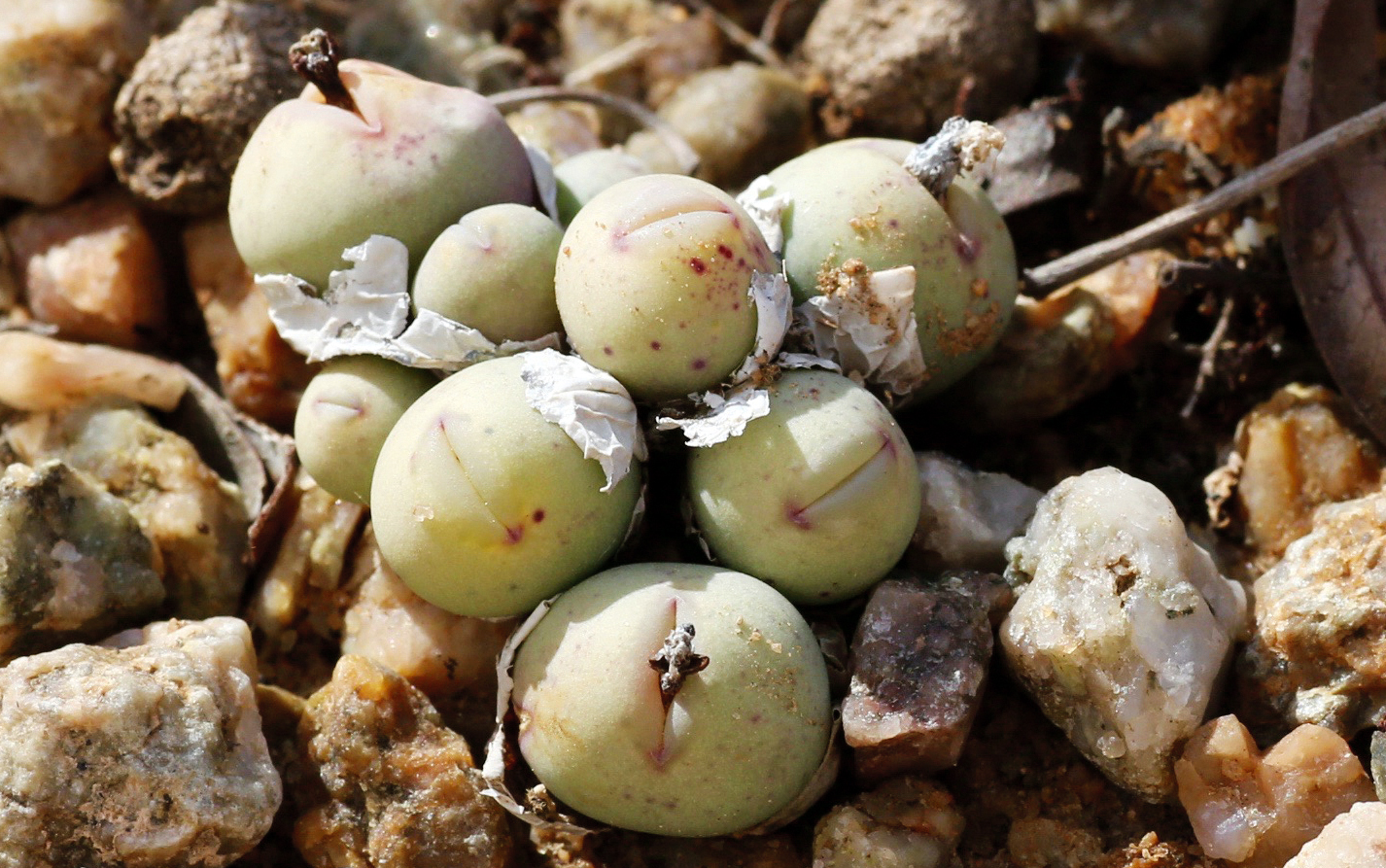 Conophytum breve. (Photo: Dr Alexey Yakovlev / Flickr)
Conophytum breve. (Photo: Dr Alexey Yakovlev / Flickr)
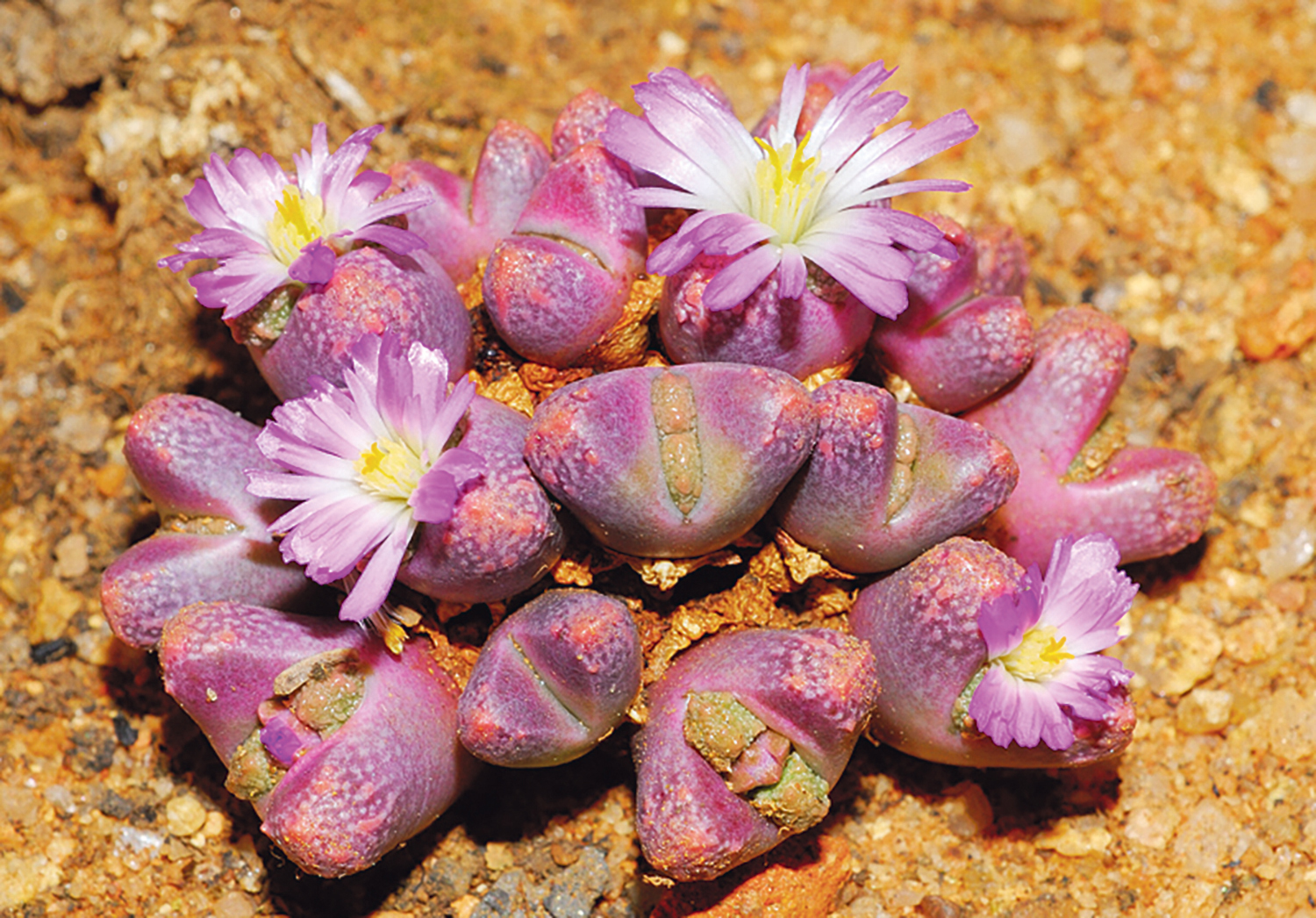 A macro photograph of a tiny Conophytum khamiesbergense flowering. (Photo: Martin
A macro photograph of a tiny Conophytum khamiesbergense flowering. (Photo: Martin
Heigan / Flickr)
Mpulo told DM168 that the price of a plant was likely to be determined by how rare and “collectible” it was viewed as. She cautioned that it was risky for the media to put a value on a plant because this could tip off poachers and cause them to change their pricing.
Lieutenant-Colonel Johan Smit, the Western Cape commander for the Stock Theft and Endangered Species units, told DM168 there were several plans in place aimed at preventing plant poaching.
“Police members at stations affected by these crimes are made aware of what to be on the lookout for and to task their informers,” he said. “Members are constantly recruiting more informers regarding the illegal succulent trade.”
Smit said there was a push for plant poachers to face longer jail terms: “During trials, testimony in aggravation of sentence [is] being led in an attempt to secure heavier penalties in an attempt to send out a strong message to those who are considering getting involved with the illegal succulent trade.”
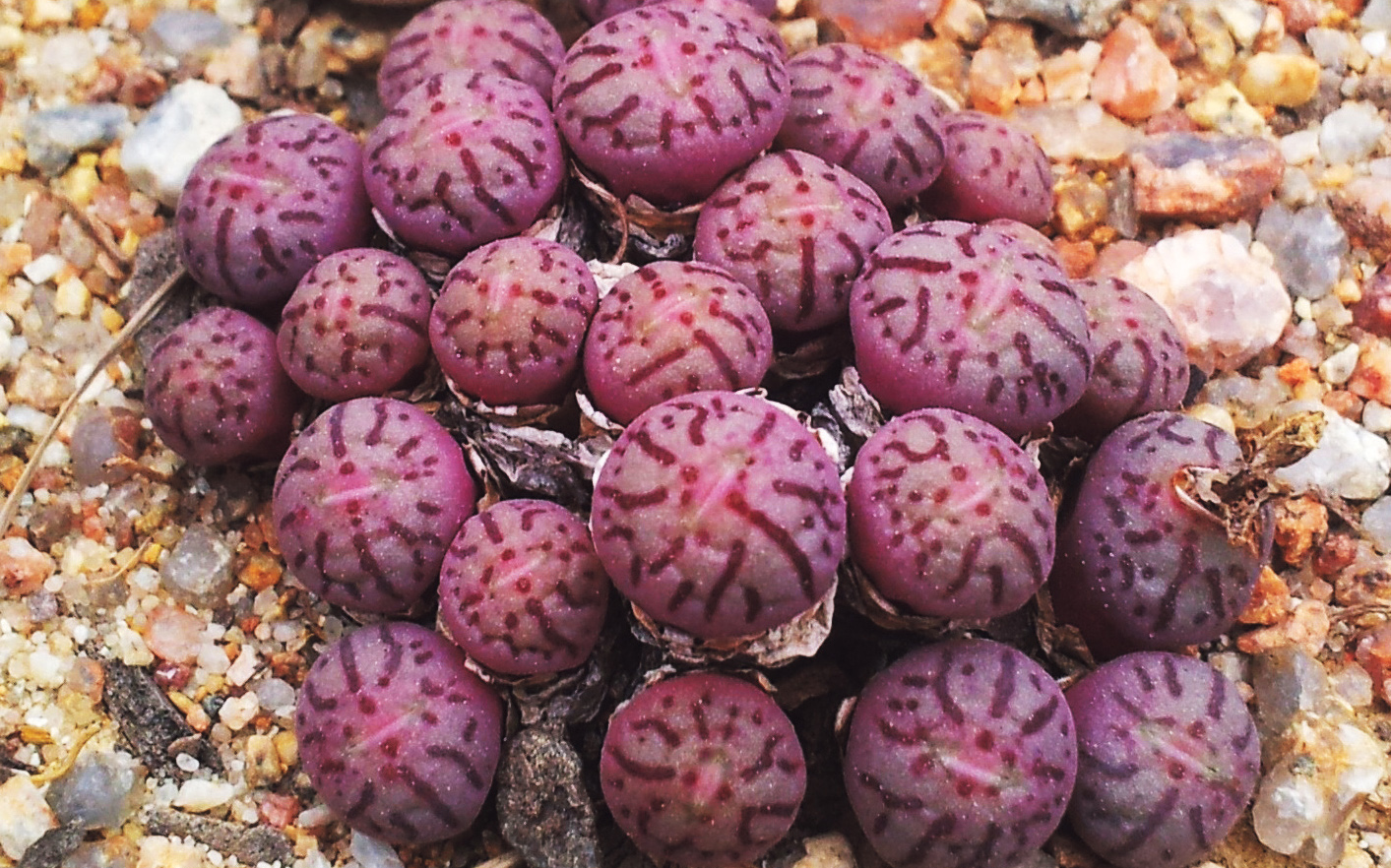 Conophytum minimum. (Photo: Wikimedia Commons)
Conophytum minimum. (Photo: Wikimedia Commons)
If plants became extinct, it would have a ripple effect. For example, areas where succulents grew attracted tourists. “If these plants are extinct,” Smit warned, “it will have an impact on tourism, which will have a negative effect on the hospitality industry, which can lead to job losses.”
CapeNature, which manages nature reserves and wilderness areas in the Western Cape, says on its website that during the hard lockdown in South Africa there was “a minor slowdown” in plant poaching, but this had picked up again as lockdown levels were lowered.
“The succulent plant trade has thus changed into an operation much like that of rhino poaching, where the main roleplayers sit offshore, and the poaching is done by local people,” it says.
International syndicates
In a case that spanned several countries and which finally wrapped up in 2022, a succulent smuggler from South Korea was convicted in both South Africa and the US.
 Police in the Western Cape made a series of arrests in May 2021 after several suspects were found trying to smuggle bags of poached succulents. (Photo: SAPS)
Police in the Western Cape made a series of arrests in May 2021 after several suspects were found trying to smuggle bags of poached succulents. (Photo: SAPS)
According to the US Attorney’s Office for the Central District of California, Byungsu Kim, along with Youngin Back and Bong Jun Kim, drove from Los Angeles International Airport to Crescent City in California in October 2018.
“From October 14 to October 16, Kim and the co-defendants harvested numerous dudleya plants [succulent plants] from DeMartin State Beach in Klamath, California, and from Del Norte Coast Redwoods State Park,” a statement said. “Kim knew the taking of the dudleya plants was unlawful. He had conducted internet searches on his smartphone for ‘poaching succulents’ and ‘dudleya’, and had read a press release regarding the arrest and convictions of three other dudleya poachers.”
On 22 October 2018, the trio travelled to a nursery in Vista, California, where they offloaded the stolen plants. The next day they made their way to Russian Gulch State Park in another part of California where, “wearing backpacks and using hand-held radios to communicate, they pulled additional dudleya plants out of the ground before returning once again to the Vista nursery”.
 Police intercepted poached succulents being transported from Springbok to Cape Town on 1 March. (Photo: SAPS)
Police intercepted poached succulents being transported from Springbok to Cape Town on 1 March. (Photo: SAPS)
Kim, it was further alleged, had an appointment with an agriculture official at the nursery and lied, saying he had government-issued certificates to export the plants to South Korea. The poached plants were then moved to a commercial exporter in California.
When Kim and his associates left the exporter, law enforcement officers carried out a search and discovered 3,175 dudleya plants.
Kim’s passport was then confiscated because of the stolen plants. But the US Central District of California attorney’s office said he had “fraudulently obtained a new South Korean passport in January 2019 by falsely claiming to the South Korean Consulate in Los Angeles that he had lost his passport”.
In May 2019, Kim heard there were criminal charges pending against him. Two months later, his associate, Bong Jun Kim, pleaded guilty and spent four months in jail.
According to US officials, Kim and the remaining co-accused, Youngin Back, fled to Mexico on foot. Then Kim, using his fraudulent passport, flew to China. From there, he flew to South Korea. Back remained a fugitive.
Later in 2019, Kim popped up in South Africa, along with another man from South Korea, Young IL Sunwoo. Both were arrested that October for stealing plants, classified on the Sanbi red list of South African plants as “rare” and “critically rare”, in the Western Cape.
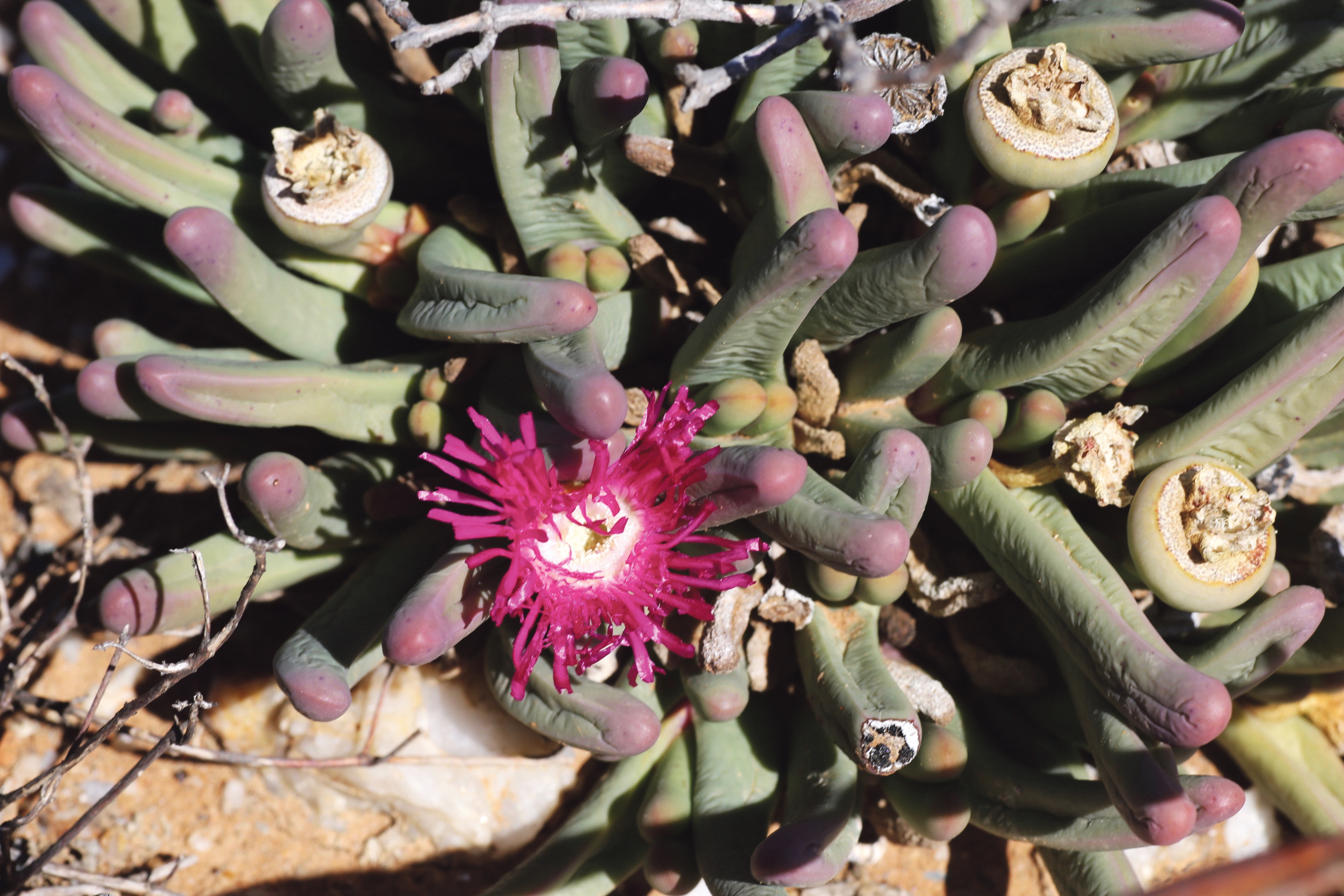 Cephalophyllum. (Photo: Supplied)
Cephalophyllum. (Photo: Supplied)
They were charged in the Cape Town Regional Court with possessing flora without documentation, picking protected flora without a permit, and picking flora without written permission of the landowner. Kim pleaded guilty.
In February 2020, both Kim and Sunwoo were sentenced to six years in jail, of which five years were suspended if they did not commit the same crime again.
Both were declared “undesirable persons in South Africa” and the court attached almost R2.5-million in cash from Kim, and R2.4-million from Sunwoo.
Sunwoo was deported. Kim was detained in South Africa because he still faced charges from his plant plundering in California and the US wanted him extradited.
Biggest and oldest
Aradhana Heeramun, a National Prosecuting Authority advocate, said during the South African court case against the duo that they were among at least 12 groups caught over five months for illegally collecting succulents in the Western Cape and the Northern Cape.
“Illegal trade in wild flora and fauna is one of the five largest illegal activities in the world, along with illegal drug trade, illegal weapons smuggling and human trafficking,” she warned.
Succulent smugglers had tried to find the biggest and oldest plants.
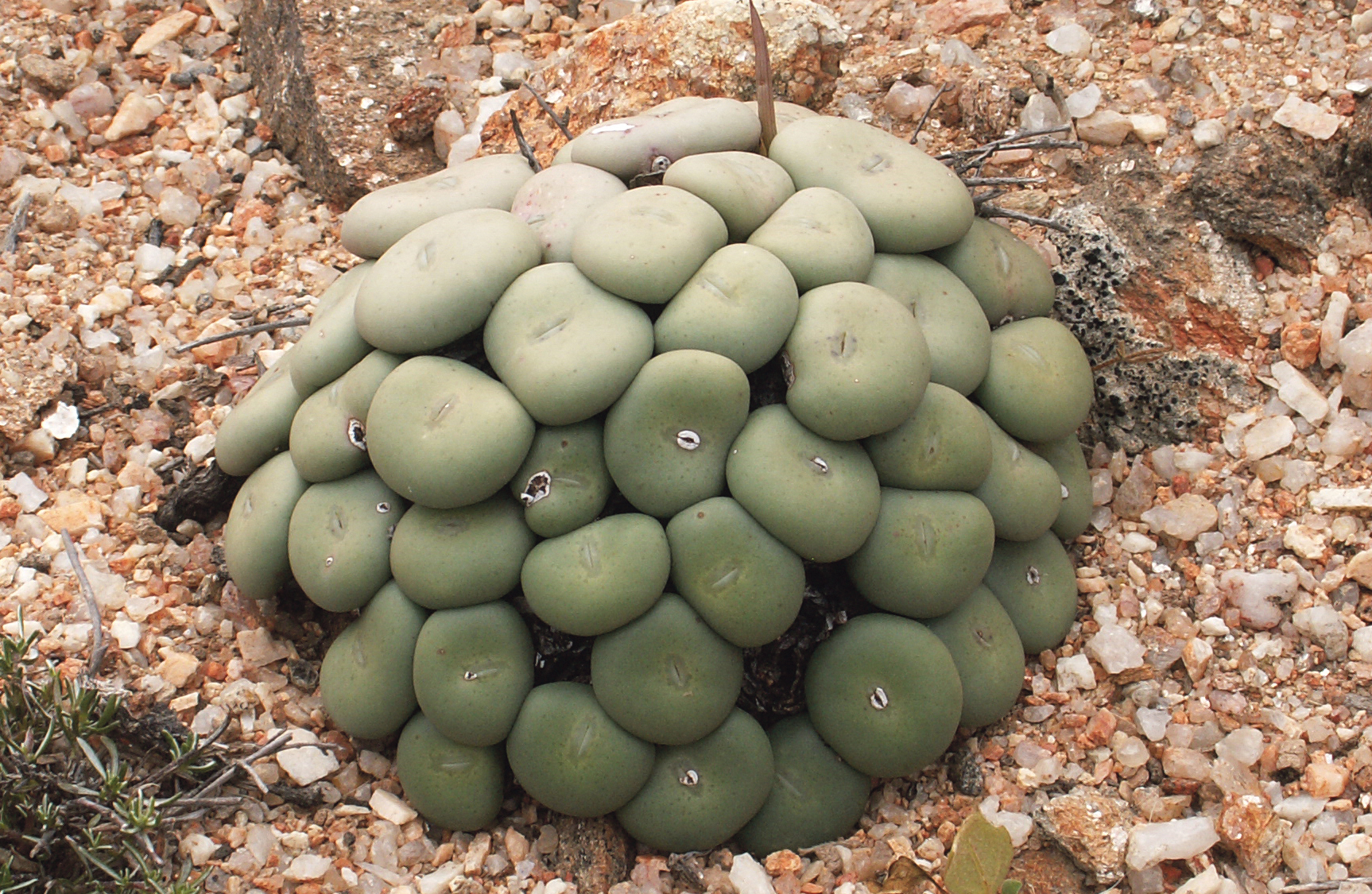 Conophytum wettsteinii. (Photo: Wikimedia Commons)
Conophytum wettsteinii. (Photo: Wikimedia Commons)
“Most importantly, the collection of these plants is an ecological tragedy. [A rough, conservative estimation is that] the cumulative age of the 2018 collected plants [is] at least 44,000 years. When one puts it in these terms, the severity, tragedy and brutality of this crime against nature is clear,” she said.
Kim was extradited to the US in October 2020 and in January 2022 was sentenced to two years in jail. A sentencing memorandum against him said Kim had travelled to the US more than 50 times since 2009. Customs records showed that he had been travelling “for succulent-related purposes”.
In another concluded case that also involves South Africa and the US, American citizen Kalman Kaminar was sentenced in April 2020 to two years in jail in Cape Town following his arrest in 2019 for the “illegal possession of succulent plants declared as protected”. His sentence was suspended for five years.
Kaminar was linked to Never Enough Cactus, a nursery in Los Angeles. It appears he is still involved in the plant industry, with his name appearing on a list of vendors at a 2021 cactus show in California.
Plant poaching is a “continuous crime”. This means that succulents that are stolen and subsequently retrieved by police cannot simply be returned to the wild.
According to Sanbi), it is also not always clear where plants have been stolen from, and “because many species are habitat specialists”, these cannot be replanted just anywhere.
If it is known where a plant has been from, and conditions are suitable, it can be replanted, but only if security in that area is ensured.
Specialised seed-sowing techniques are used to reintroduce a plant species to the wild. Poached plants that cannot be replanted in the wild are sent to designated nurseries around South Africa where they are cared for, to try to ensure their survival.
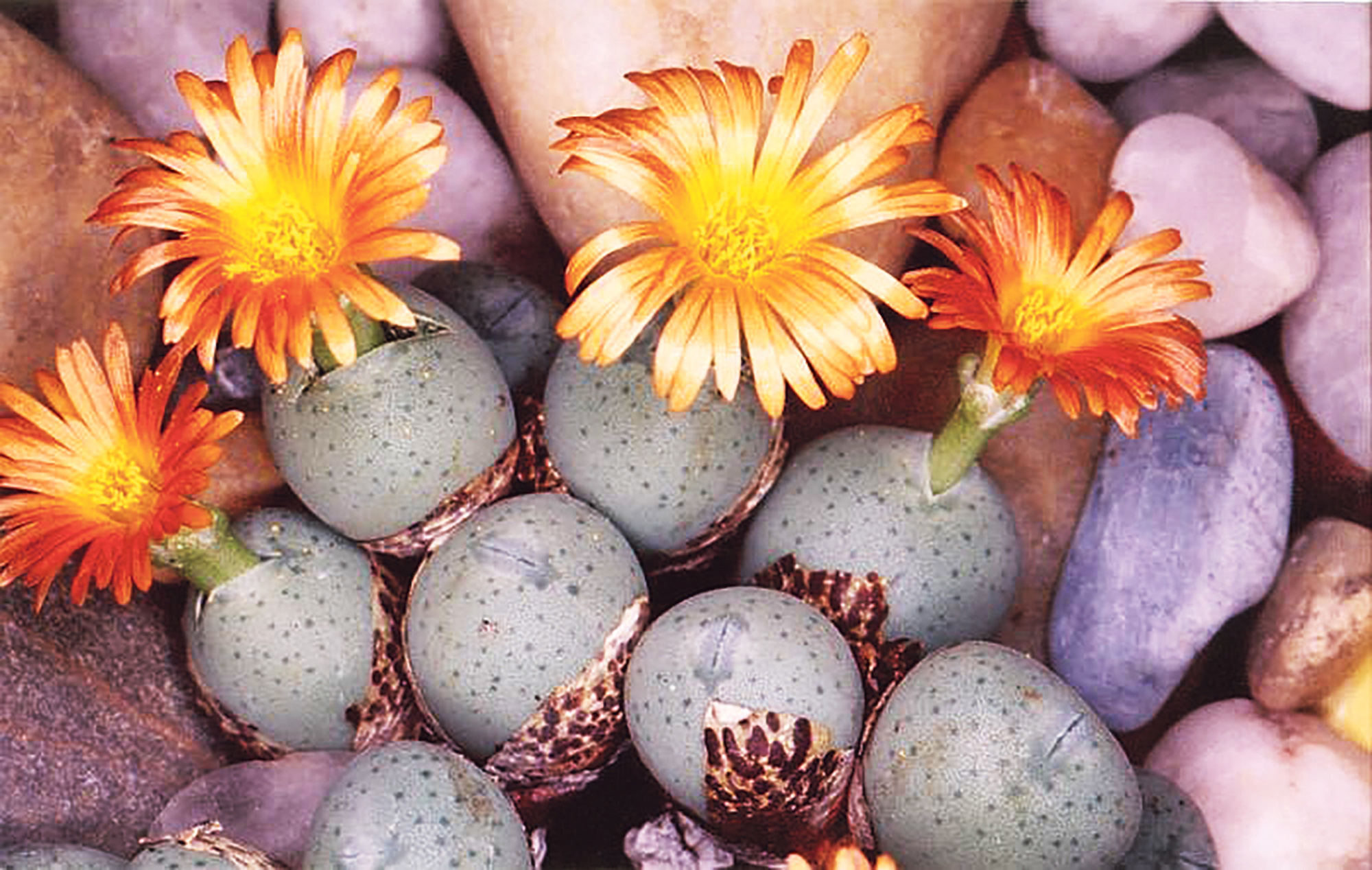 Conophytum auctum. (Photo: Wikimedia Commons)
Conophytum auctum. (Photo: Wikimedia Commons)
“Mass removal of succulent plant populations and the associated disturbance to the soil [from vehicle and foot traffic and digging] can destroy delicate organic crusts that characterise the region,” Sanbi warned.
“This has major long-term negative impacts on ecosystem function. Losing any species from the environment affects all other species within the ecosystem and leads to ecosystem function deterioration.”
Poaching plants towards extinction
September 2019 – Jaromir Chvastek and Tomas Malir, both from the Czech Republic, are found with 1,026 succulents in Bitterfontein, the northernmost part of the Western Cape. They plead guilty to having the plants illegally and are sentenced to two years in jail, suspended for five years.
February 2020 – Byungsu Kim and Young IL Sunwoo of South Korea are declared undesirable persons in South Africa for succulent poaching. Kim is subsequently extradited to the US to face similar charges.
April 2020 – US citizen Kalman Kaminar, who was linked to a nursery in Los Angeles, is sentenced in Cape Town to two years in jail, suspended for five years.
September 2021 – Four suspects are arrested after 1,326 endangered Conophytum acutum succulents are found on them in the Vanrhynsdorp area of the Western Cape.
October 2021 – Five suspects are arrested near Vanrhynsdorp in the Western Cape when a car is searched. According to police, three bags with a total of 5,697 succulent Conophytum plants and two bags containing herbs were found.
January 2022 – Byungsu Kim is sentenced to two years in jail in the US for plant poaching there.
February 2022 – Four suspects are arrested after 25,000 plant species are discovered at a premises in the Cape Town suburb of Milnerton.
March 2022 – Police spokesperson Frederick van Wyk says a suitcase and backpack filled with succulents was confiscated after a taxi was searched near Citrusdal in the Western Cape. A suspect is “detained on a charge of possession of flora without documentation”.
March 2022 – A suspect is arrested at Cape Town International Airport where he is found with two boxes of succulents. He takes police to a premises in the suburb of Kenilworth where they confiscate more plants, between 50 and 100 years old.
March 2022 – A suspect is arrested for possession of endangered succulents in Klawer in the Western Cape – 4,544 plants, hidden in a trailer, are found. It is suspected the plants were being smuggled from Springbok to Cape Town. DM168
(Sources: SAPS, NPA, US Attorney’s Office for the Central District of California)
This story first appeared in our weekly Daily Maverick 168 newspaper which is available for R25 at Pick n Pay, Exclusive Books and airport bookstores. For your nearest stockist, please click here.

[hearken id="daily-maverick/9303"]




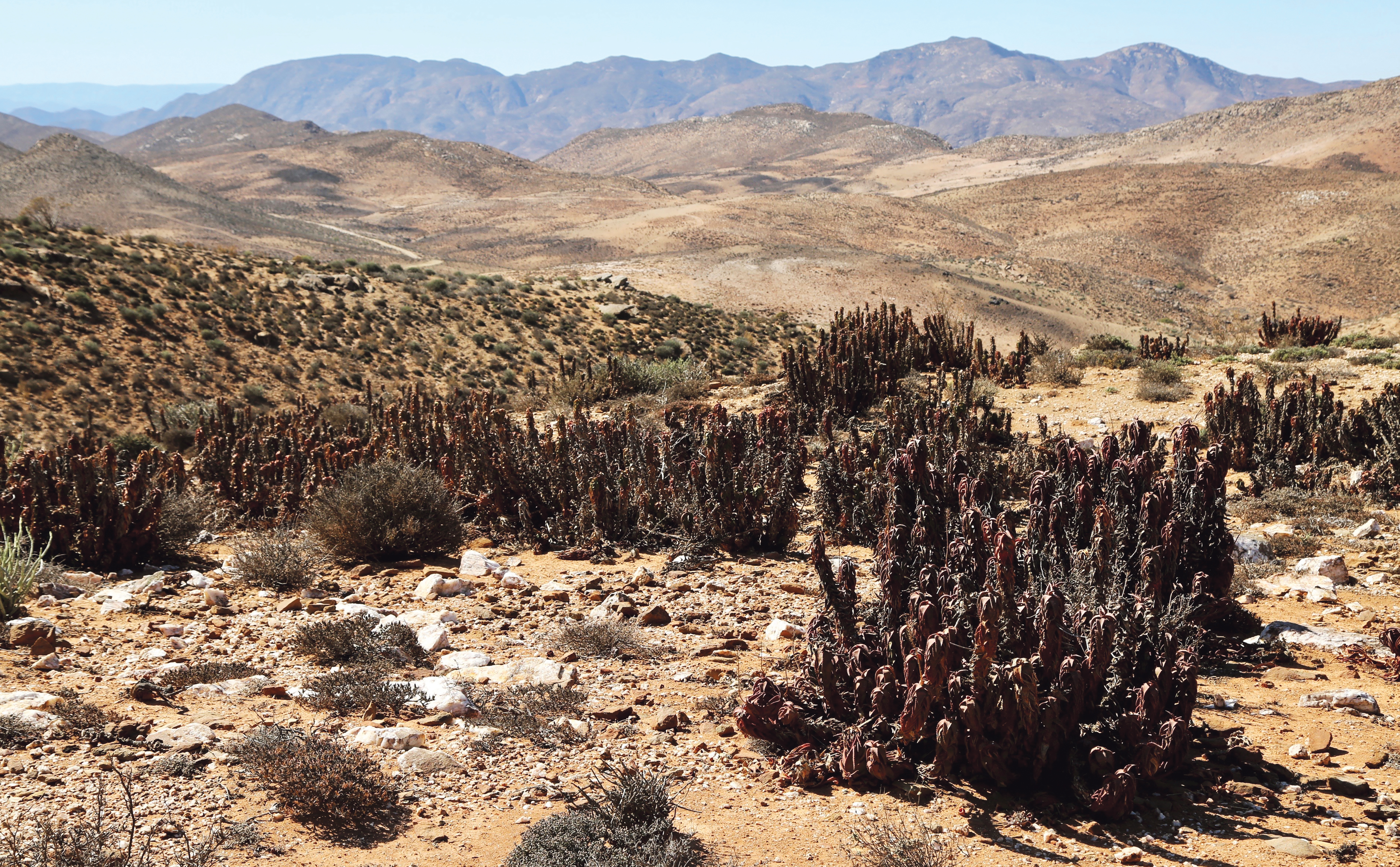 Conophytum auctum.
Photo: Wikimedia Commons
Conophytum auctum.
Photo: Wikimedia Commons 